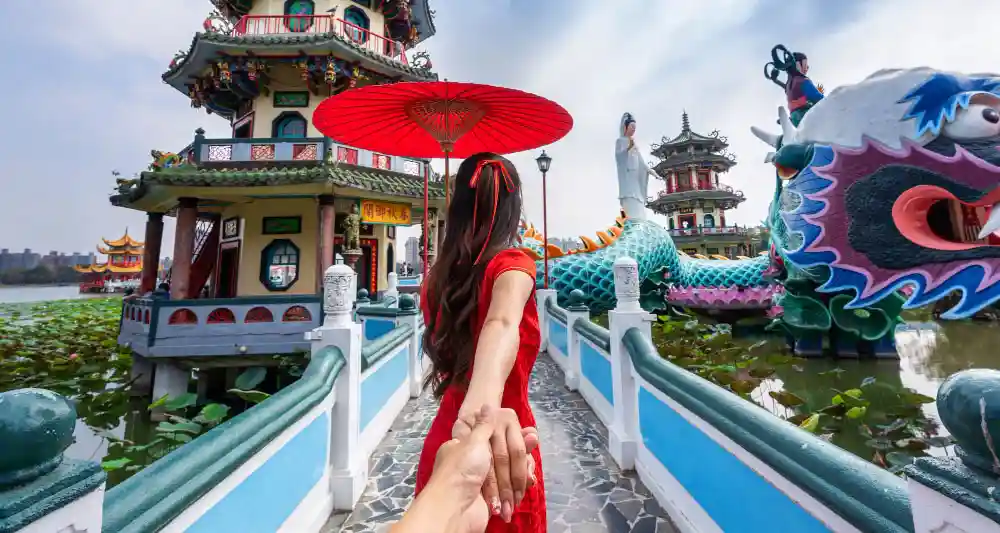Because of millennia of history, custom, and cultural conventions, both Chinese and Western cultures are both diverse and rich. Understanding these cultural distinctions is essential for establishing mutual respect and successful international communication as the world becomes more interconnected. We shall examine the key differences between Chinese and Western cultures in this essay, illuminating their distinctive worldviews, traditions, and practices.
What Are the Major Differences Between Chinese and Western Cultures?
Chinese and Western cultures diverge sharply in a number of areas, including family dynamics, societal structure, communication styles, value systems, and education. In the sections that follow, we delve into these distinctions and consider how they affect how people act, think, and perceive the world.
Social Structure and Hierarchy
Hierarchy and deference to authority are highly valued in Chinese society. Confucian principles, which emphasize filial piety and loyalty to family and community elders, serve as the foundation of this organization. Western cultures, on the other hand, frequently take a more egalitarian stance, allowing individuals to be themselves and to question authority when appropriate.
Communication Styles and Nonverbal Cues
Chinese people often communicate more subtly and indirectly, depending primarily on nonverbal clues like body language and facial expressions to convey information. Western communication, in comparison, tends to be more explicit and direct and values verbal clarity and openness.
Values and Beliefs
Interdependence and communal harmony are highly valued in Chinese culture. Chinese traditional values place a strong emphasis on modesty, humility, and the achievement of collective goals over personal ambitions. Western societies, on the other hand, frequently place a higher value on individualism, personal success, and self-expression.
Time Orientation
Between Chinese and Western cultures, there are substantial differences in time orientation. Chinese culture has a propensity for having a long view, emphasizing the past and future while honoring tradition and ancestry roots. Western societies, on the other hand, frequently prioritize the present and future growth and have a more instantaneous sense of time.
Family Dynamics and Filial Piety
Chinese culture places a strong emphasis on the family, and the idea of filial piety is strongly engrained. The reverence and dedication that kids are supposed to have for their parents and other adults is known as “filial piety.” Western cultures place a stronger focus on individualism and personal choices, which results in a wide range of different and variable family dynamics.
Work Ethic and Success
Chinese culture places a high importance on diligence, tenacity, and commitment to accomplishment. Building solid social networks is emphasized in the “guanxi” system, a crucial component of Chinese society, in order to advance both personally and professionally. The emphasis in Western cultures is on meritocracy and individual achievement, which is frequently based on a person’s abilities and qualifications.
Education and Learning
Both Chinese and Western cultures place a high value on education, yet their approaches to learning can vary. While Western education promotes critical thinking, creativity, and independent inquiry, Chinese education places an emphasis on rote memorization and reverence for authority.
Cuisine and Dining Etiquette
Western and Chinese meals are prepared and taste differently. Chinese food places an emphasis on a harmony of tastes and textures, with dishes shared throughout the family. Chinese dining etiquette places a strong emphasis on expressing gratitude for the host’s kindness. Individual meals are more typical in Western countries, and dining manners are typically more casual.
Festivals and Celebrations
There are many festivals and celebrations in both Chinese and Western civilizations. Chinese holidays like the Spring Festival (Chinese New Year) and the Mid-Autumn Festival frequently center around gatherings of family and long-standing customs. Western cultures celebrate holidays with a variety of customs and rituals that have religious or historical importance, such as Christmas and Thanksgiving.
Social Norms and Manners
Chinese and Western cultures have different social customs and manners. In China, it’s important to keep one’s “face” or reputation and social status intact. This may entail avoiding direct conflict and being complimentary even in difficult circumstances. In Western cultures, assertiveness and direct communication are valued alongside civility and respect.
Personal Space and Body Language
Chinese and Western cultures have different ideas on what constitutes personal space. Chinese people may like to stand closer to one another when conversing, a reflection of their emphasis on group cohesiveness. People in Western cultures frequently want more privacy and may view close proximity as intrusive.
Religion and Spirituality
Confucianism, Taoism, and Buddhism have a significant influence on Chinese culture, which shapes its moral and spiritual ideals. In contrast, a diverse range of religious practices are represented in Western civilizations, including Christianity, Islam, Judaism, and other faiths.
Art and Aesthetics
There are unique motifs and styles in Chinese and Western art. Calligraphy, ink drawings, and delicate ceramics are common elements of Chinese art, which reflects the nation’s long artistic tradition. From Renaissance classics to contemporary abstract art, Western art spans a variety of movements and genres.
Greetings and Introductions
In Chinese culture, greetings and introductions frequently feature formal titles and salutations. It is common to refer to people by their last name, followed by the appropriate title. First names are more frequently used in Western cultures, and handshakes and hugs are typical means of greeting.
Gender Roles and Expectations
Between Chinese and Western cultures, gender roles and expectations might vary greatly. Gender roles are more clearly defined in Chinese culture, and there are different expectations for men and women. Even though there are still problems, gender equality has made great progress in Western countries.
Superstitions and Beliefs
The superstitions and beliefs that are prevalent in Chinese society are frequently affected by feng shui and traditional Chinese medicine. Numerous Chinese individuals seek the advice of fortune tellers and take into account lucky dates for important life events. The superstitions and beliefs of Western civilizations are also frequently derived from folklore and local customs.
Attitudes Toward Age and Aging
The elderly are highly revered in Chinese culture because they are seen as providers of knowledge and experience. Increased respect and authority are frequently linked to aging. Western nations have varying views on aging, with some society valuing youth and others emphasizing the wisdom that comes with experience.
Fashion and Clothing
Cultural conventions and aesthetics are reflected in fashion and apparel trends. The qipao and changshan, traditional Chinese clothing, radiate class and heritage. Western cultures have a wide spectrum of fashion trends, from informal to formal, with distinct influences from many places and eras.
Entertainment and Leisure
Chinese and Western cultures have different tastes in entertainment. Opera, calligraphy, and martial arts demonstrations are just a few examples of the diverse art forms used in traditional Chinese entertainment. Sports, movies, musical performances, and theater are just a few of the diverse forms of entertainment available in Western civilizations.
Technology and Innovation
Technology and innovation have benefited greatly from both Chinese and Western cultures. China is become a technological powerhouse, especially in fields like e-commerce and mobile payments. With innovations like the internet and smartphones, Western nations have also significantly shaped the digital landscape.
Language and Communication Challenges
Communication across cultural boundaries might be difficult due to language problems. Chinese is a tonal language, which makes learning and mastering it challenging for Westerners. The characters and language framework also pose particular challenges. Chinese speakers may have trouble pronouncing English words and understanding its idioms in Western societies.
Business Etiquette and Practices
Understanding various business etiquettes and conventions is necessary for conducting business in China and Western nations. Building relationships and trust is important in Chinese corporate culture, and this is frequently done through lavish banquets and gift-giving. The emphasis on efficiency, contract agreements, and open negotiating is characteristic of western corporate culture.
Environmental Awareness and Sustainability
Different cultural perspectives on sustainability and environmental consciousness exist in China and the West. China has experienced environmental problems as a result of its fast industrialization, although it has made tremendous progress in green projects. Western nations struggle with environmental problems as well, with an increasing emphasis on eco-friendly behaviors and renewable energy options.
Social Media and Online Behavior
Chinese and Western cultures utilize social media in different ways and behave differently online. WeChat and Weibo are the dominant social media sites in China, whereas Facebook, Twitter, and Instagram are popular in the West. The kind of content communicated and the level of privacy anticipated are influenced by cultural differences.

























+ There are no comments
Add yours